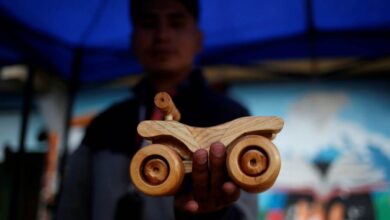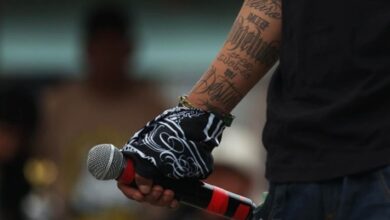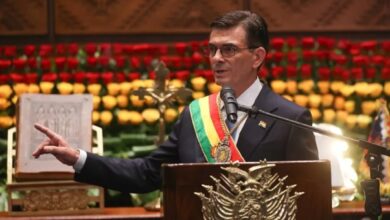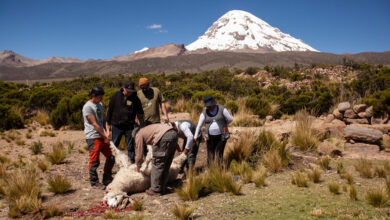On Bolivia’s 200th Birthday, a Rightward Political Shift Beckons Amid Crisis and Unrest
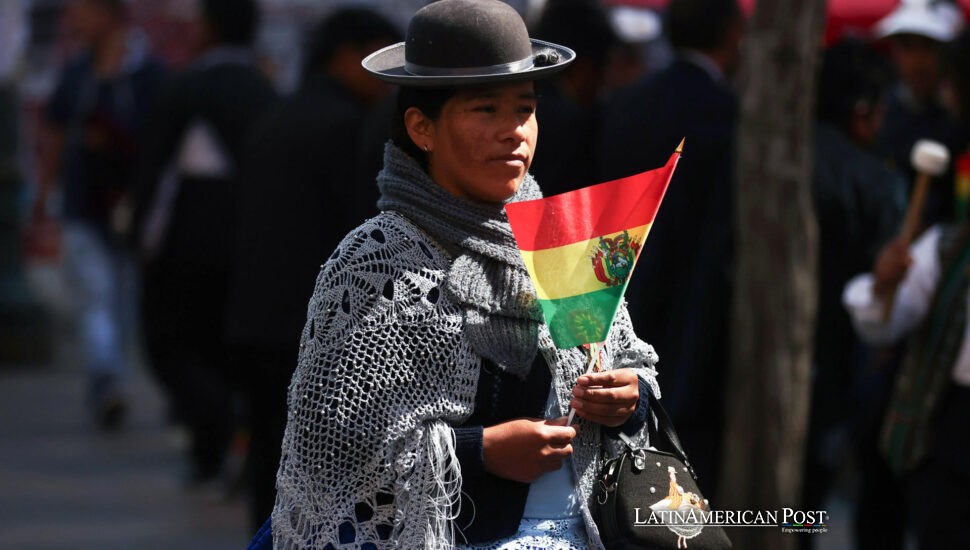
As Bolivia prepares to celebrate two centuries of independence, its streets hum with brass bands—but also with whispers of change, as voters weigh breaking from 20 years of leftist rule to reclaim stability, dollars, and a place in the global economic order.
A Nation Celebrates with Flags—and Fuel Rationing
In Sucre, the city where Bolivia declared independence in 1825, balconies are draped with flags. Marching bands tune their trumpets. Children in school uniforms recite the deeds of national heroes. But beneath the surface, the mood is far from jubilant.
In the crowd gathered for President Luis Arce’s bicentennial speech, phones flicker with real-time poll numbers. Shoppers eye the cost of rice and chicken in strained silence. Gasoline queues stretch around corners. Soldiers stand watch at fuel stations, enforcing strict rations. For a country that once exported silver, tin, and later natural gas, the symbolism is painful: Bolivia, sitting atop the world’s richest untapped lithium reserves, is begging for bread and diesel.
Inflation is at its highest in a generation. Foreign reserves have collapsed. Supermarkets ration imported goods, and whispers about a parallel dollar market grow louder by the day. In a country long defined by its revolutionary left, many now ask whether the MAS era—shaped by Evo Morales and continued by Arce—is running out of both cash and time.
The Left’s Legacy: Boom, Backlash, and a Bitter Split
For nearly two decades, Bolivia’s political compass pointed left. First, under Evo Morales, the coca grower-turned-president who rewrote the constitution and declared Bolivia a “Plurinational State.” Then, under Luis Arce, Morales’s former finance minister, elected in 2020 to steady the party after the contested 2019 election and Jeanine Áñez’s turbulent interim presidency.
The Morales years were defined by commodity-fueled prosperity. Gas exports filled state coffers, cash transfers expanded, and schools, roads, and clinics bloomed across the Altiplano. But even then, cracks were forming.
Bolivia’s economy grew, but it grew dependent on gas, on subsidies, on a state apparatus that ballooned with every boom-year promise. When global gas prices collapsed, reserves drained, and the country’s dollar peg began to tremble. The MAS model, once sold as revolutionary, began to look brittle.
The political front fractured, too. Morales tried to sidestep term limits in 2019, sparking mass protests. His ouster and Arce’s return only deepened the divide. By 2023, the two men—once allies—were locked in a public feud. Congress ground to a halt. Inflation soared. Fuel shortages became routine.
That paralysis has created an opening—and Bolivia’s conservatives are rushing in.
Conservative Candidates Offer Market Fixes and Global Re-entry
Two veteran figures have emerged to fill the vacuum: Samuel Doria Medina and Jorge “Tuto” Quiroga. Both are known quantities, both are business-minded, and both believe Bolivia needs a clean break from MAS’s economic legacy.
Doria Medina, a cement tycoon and philanthropist, leads the Unity Alliance. He aims to eliminate loss-making state enterprises, lift price controls, and foster a pro-business climate to attract lithium investment. His first diplomatic stop, he says, would be Brasília, not Caracas—a clear message that ideological alignment will no longer trump pragmatic alliances.
Quiroga, a U.S.-educated engineer and former president, leads the Liberty Alliance. He proposes digitizing the bureaucracy, cutting tariffs, and seeking a stabilization loan backed by the IMF and U.S. Treasury. Both men vow to restore ambassador-level relations with Washington after nearly two decades of icy silence.
They differ in trade strategy. Doria Medina would keep Bolivia in Mercosur and BRICS, hoping to leverage big markets. Quiroga wants to renegotiate what he calls Mercosur’s “bureaucratic corset” and instead pursue bilateral deals with Europe and Asia.
Their platforms are detailed and blunt. They speak of austerity, foreign capital, and reintegration into global financial systems. For voters feeling the pinch, it’s a message that feels both foreign and oddly refreshing.
A Bicentennial Ballot with High Stakes
The timing is delicate. The left is fractured. Morales, still barred from running, has called for blank ballots. Arce, weakened by low approval and economic malaise, dropped his reelection bid. Senate President Andrónico Rodríguez, a young lawmaker with charisma but little machinery, now leads the MAS ticket.
That fragmentation could send the race into a runoff on October 19, assuming no candidate clears 50 percent—or 40 percent with a 10-point lead. Analysts expect a center-right coalition to form if needed, potentially ending MAS’s congressional majority for the first time since 2005.
But the next president will inherit a country on edge.
Foreign reserves are nearly depleted. Labor unions remain powerful and suspicious. Subsidies have become woven into daily life, and removing them could spark unrest. And though Bolivia’s lithium reserves could finance a new economic era, tapping them requires community buy-in.
Indigenous communities near the Salar de Uyuni remain wary. They want infrastructure, environmental guarantees, and a seat at the table—not just royalties. Memories of Cerro Rico’s plunder and gas contract corruption remain fresh. The next administration will also need to navigate competing offers from Chinese battery firms and U.S. tech companies, all eager to secure lithium supply chains.
A lithium-fueled recovery is possible. But it will require a delicate balancing act: restore investor trust without betraying grassroots movements.
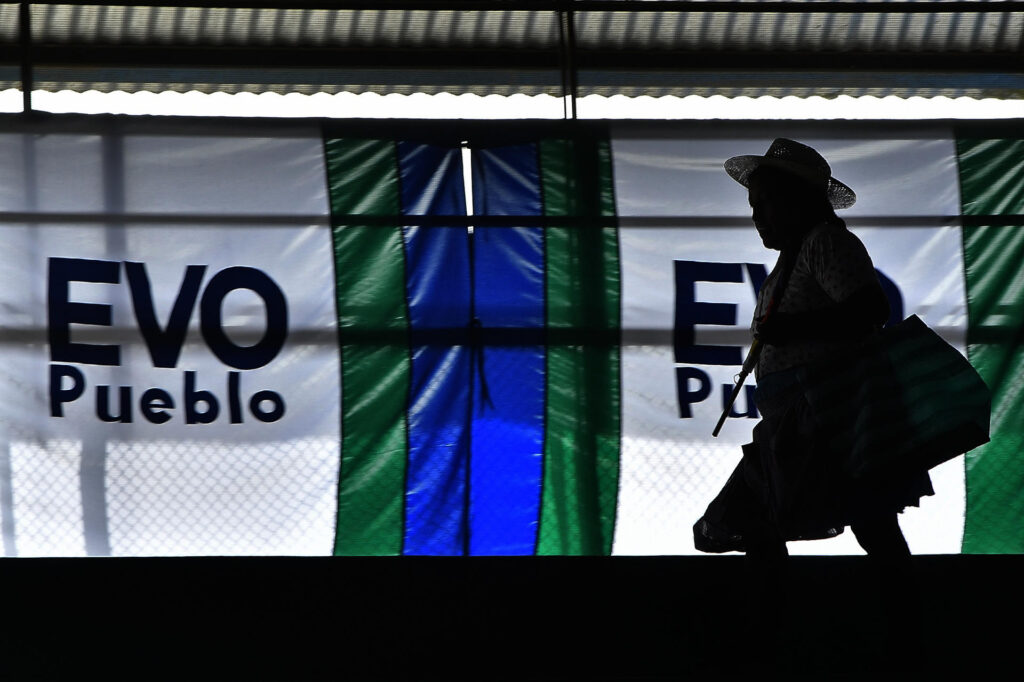
Bicentennial Crossroads: Reform or Return
This isn’t just a presidential race. It’s a referendum on two decades of leftist governance, and a test of whether Bolivia’s electorate still believes in state-led growth and sovereignty, or whether it’s ready to risk a painful market correction in exchange for dollars and global reintegration.
On August 6, as cannons fire over Sucre’s Plaza 25 de Mayo, the contradictions will be everywhere. Schoolchildren reciting liberation poetry. Parents whispering about the dollar exchange rate. Flags waving for a republic that seems prouder in memory than in its present moment.
As one factory worker told EFE outside a rationed gas station: “We fought for this country to be free. Now we just want it to work.”
And perhaps that’s the clearest summary of what’s at stake. Not ideology. Not revolution. Function. Stability. Dignity.
Also Read: Costa Rica’s Political Earthquake: Lawmakers Weigh Lifting President Chávez’s Immunity
Whether Bolivia pivots right or doubles down on MAS, its third century begins with an inescapable question: Can a proud nation, built on silver and struggle, turn lithium into liberation—or will history repeat itself in a more electric form?
EFE gathered all interviews and reporting above.


